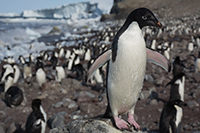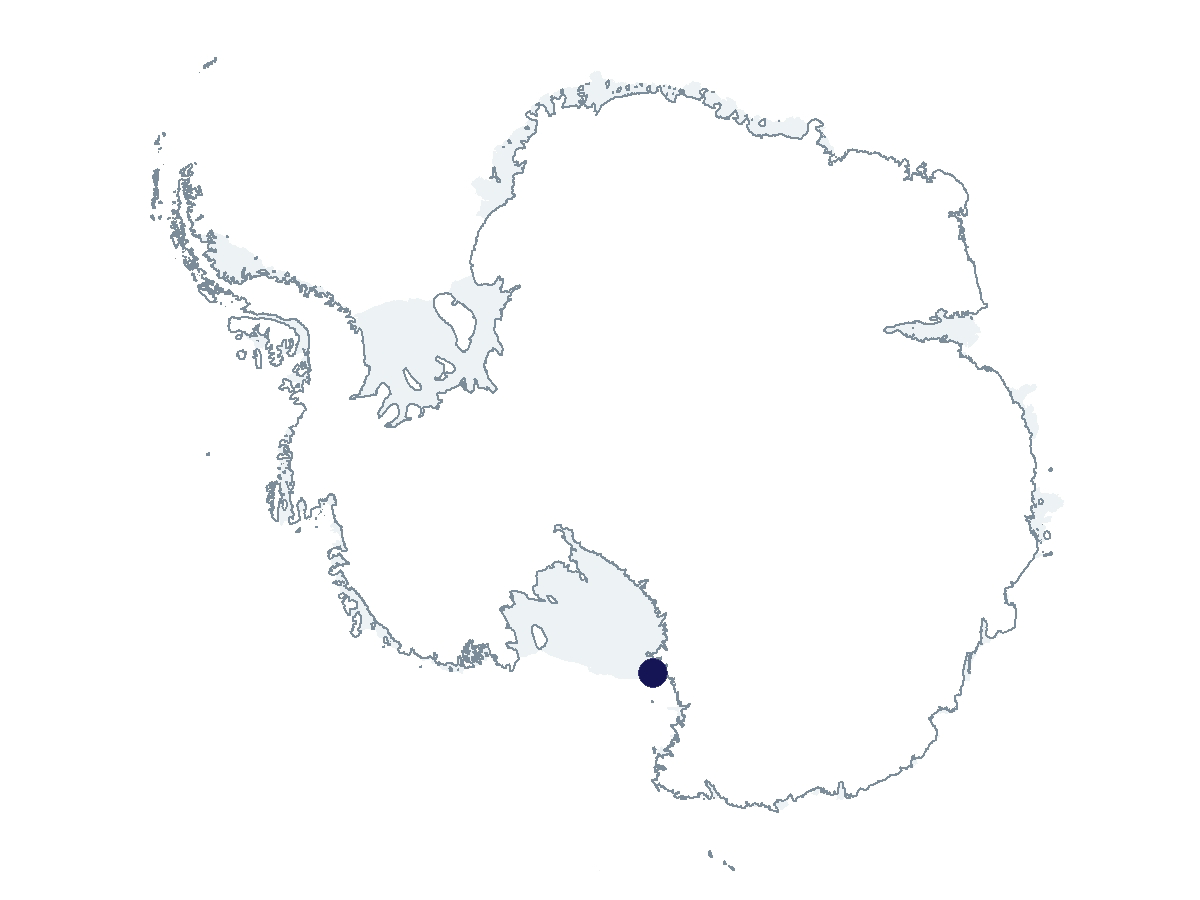2022-2023 USAP Field Season
Project Detail Project TitleNSFGEO-NERC Collaborative Research: P2P: Predators to Plankton – Biophysical controls in Antarctic polynyas Summary
Event Number:
Program Director:
ASC POC/Implementer: Principal Investigator(s)
Dr. David Ainley
Location
Supporting Stations: McMurdo Station, RV/IB Nathaniel B. Palmer DescriptionTo better understand food web dynamics and structure of a Southern Ocean trophic hotspot, and to resolve a penguin population growth paradox, where expansion of colonies coincides with chicks fledging underweight, the PIs will combine: 1) deployment of acoustically-equipped gliders in a dense grid to assess size, location and density of prey, both inside and outside of intense penguin foraging areas; 2) quantify preyscape related biophysics using glider sensors (mixed-layer depth, stratification, irradiance, chlorophyll and particulate matter concentrations); 3) penguin biologging to quantify foraging area overlap and behavior as affected by preyscape and oceanographic characteristics; 4) penguin diet by direct and DNA/stable isotope analysis; and 5) quantification of abundance and spatial distribution of competing whales and seals, using satellite imagery. This study will improve the understanding of top-down and bottom-up processes in the Ross Sea Polynya marginal ice zone, providing important information for management of the Ross Sea Region Marine Protected Area. Field Season OverviewThree participants will launch three gliders from the fast ice at Cape Crozier in November. The gliders will sample for at least two months in the Ross Sea polynya while being guided remotely, then will be retrieved in late January/early February by participants aboard the RV/IB Nathaniel B. Palmer research vessel. Meanwhile, two participants will deploy in early December and will embed with Ballard (B-200-M) at Cape Crozier and Cape Royds to assist with Adélie penguin biologging and monitoring activities through mid- to late January. Deploying Team Members
|
2022-2023 Science Planning Summary



For USAP Participants |
For The Public |
For Researchers and EducatorsContact UsU.S. National Science FoundationOffice of Polar Programs Geosciences Directorate 2415 Eisenhower Avenue, Suite W7100 Alexandria, VA 22314 Sign up for the NSF Office of Polar Programs newsletter and events. Feedback Form |



